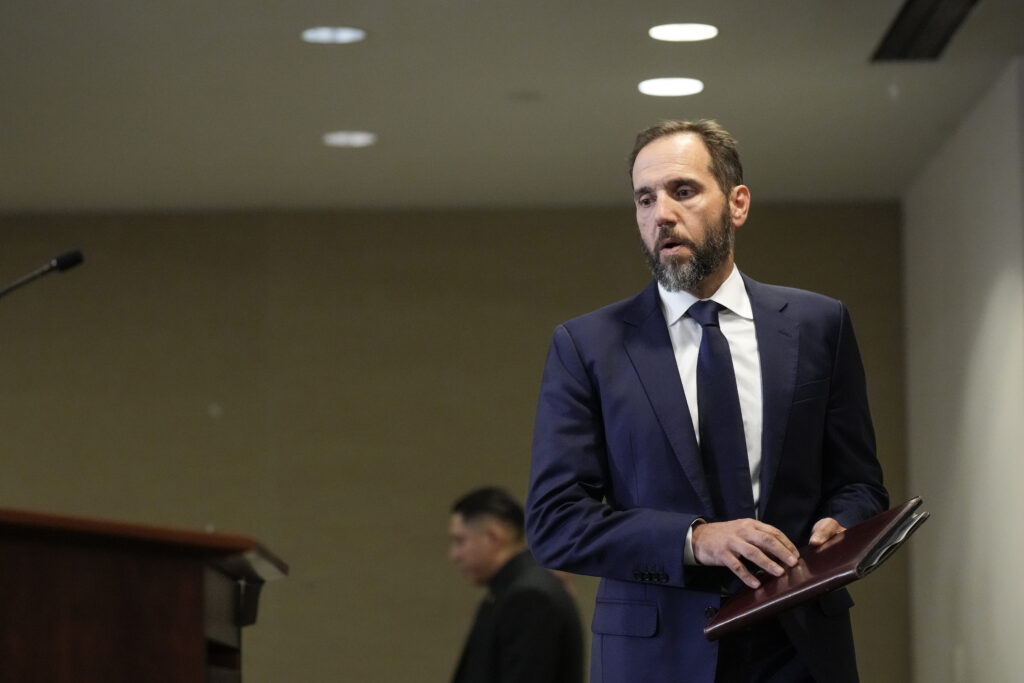USA: Trump supprime des restrictions de Biden sur la consommation des véhicules
Donald Trump a annoncé mercredi l’allègement de la réglementation sur la consommation et les émissions des véhicules, évoquant une baisse de leur prix d’achat mais des critiques anticipent une hausse des factures à la pompe et l’accélération du changement climatique.”Nous supprimons officiellement les ridiculement contraignants et horribles standards CAFE de Joe Biden qui imposaient des restrictions coûteuses, et toutes sortes de problèmes”, a déclaré le président américan dans le Bureau ovale de la Maison Blanche, sans donner de détails mais vantant une “mesure historique”.Il faisait référence à la réglementation dite “Corporate average fuel economy” créée en 1975 après la crise pétrolière, puis amendée par différentes administrations pour réduire les émissions polluantes et de gaz à effet de serre.Après être revenu, lors de son premier mandat, sur les mesures du gouvernement Obama en la matière, il fait de même concernant leur renforcement drastique instauré par Joe Biden.Depuis son retour à la Maison Blanche en janvier, le climato-sceptique Donald Trump a révoqué ou amputé de nombreuses mesures favorisant la transition électrique des véhicules.Le ministère des Transports estime, dans un communiqué, que le nouveau dispositif – baptisé “Freedom Means Affordable Cars” – permettra d’éviter une hausse de 1.000 dollars à l’achat d’un véhicule neuf, soit 109 milliards de dollars sur cinq ans.Les trois grands constructeurs américains ont salué la décision présidentielle.Plusieurs représentants de l’industrie automobile américaine se trouvaient dans le Bureau ovale, notamment les patrons de Ford et de Stellantis (Chrysler, Jeep, etc).- Changement climatique -“En tant que plus gros producteur américain de véhicules, nous apprécions l’initiative du président Trump d’aligner les standards d’économie de carburant sur les réalités du marché”, a commenté Jim Farley, patron de Ford.Il est possible d’effectuer “de vrais progrès en matière d’émissions et d’efficacité énergétique tout en offrant aux clients du choix et des prix abordables”, a-t-il poursuivi, saluant une “victoire pour les clients et le bon sens”. Réaction similaire d’Antonio Filosa, patron de Stellantis, qui a aussi plaidé pour des “politiques environnementales responsables permettant aussi (aux constructeurs) d’offrir à (leurs) clients la liberté de choisir le véhicule qu’ils souhaitent au prix qu’ils peuvent payer”.General Motors a réitéré son engagement “à fournir la meilleure et plus large gamme de véhicules à motorisations électrique et à combustion du marché”.L’Alliance pour l’innovation automobile “examine” les nouveaux critères mais “nous sommes ravis” qu’un nouveau dispositif se profile, a réagi John Bozzella, son président.”Les règles CAFE finalisées sous l’ancienne administration représentaient un défi extrême pour les constructeurs”, a-t-il relevé, jugeant également nécessaire de “préserver le choix des consommateurs et la compétitivité internationale” des groupes américains.Mais Gina McCarthy, conseillère sur le climat dans les administrations Biden et Obama, estime que ce rétropédalage va, au bout du compte, nuire à l’industrie automobile et aggraver le dérèglement climatique.”S’il y a une chose dont nous pouvons être sûrs, c’est que ce gouvernement n’agira jamais dans l’intérêt de notre santé ou de l’environnement”, a-t-elle déploré.Selon Dan Becker, du Centre pour la diversité biologique, Donald “Trump détruit la plus grande initiative jamais entreprise par un pays pour lutter contre la consommation de pétrole et la pollution qui contribue au changement climatique, et pour aider les consommateurs à économiser à la pompe”.Le gouvernement Biden avait imposé une réduction progressive de la consommation des véhicules, avec l’objectif de rouler en moyenne plus de 50 miles avec un gallon d’ici 2031 (80 km pour 3,78 litres). Avec le nouveau dispositif, cela descend à 34,5 miles par gallon, selon le ministère.”Pas mieux” qu’actuellement, a réagi M. Becker.Le ministère avait considéré en juin que les objectifs de Biden seraient inaccessibles aux véhicules à combustion et imposeraient donc la transition électrique.”Atteindre les objectifs d’économie de carburant était difficile pour l’industrie automobile et ajoutait au coût des véhicules. Cependant, les consommateurs apprécient les véhicules économes en carburant”, a commenté mercredi Charlie Chesbrough, économiste de Cox Automotive.Depuis fin 2023, les grands constructeurs ont revu à la baisse de nombreux projets liés aux véhicules électriques car l’appétence du public a été inférieure aux anticipations.





